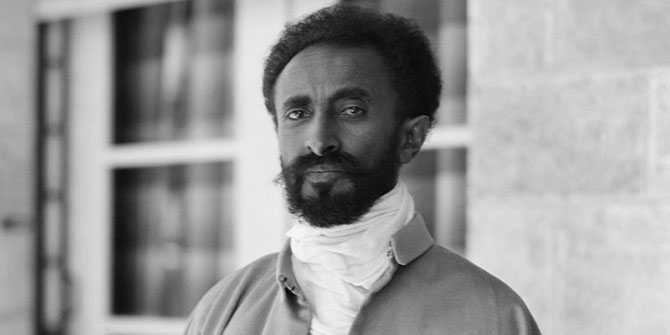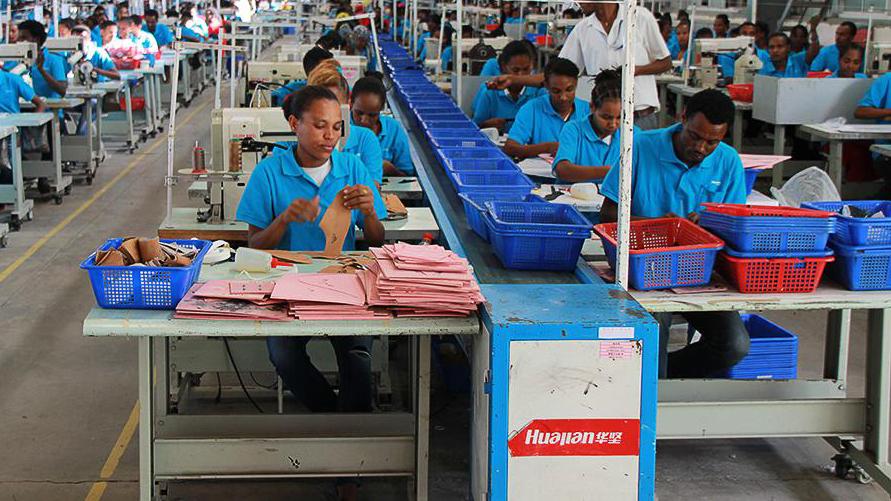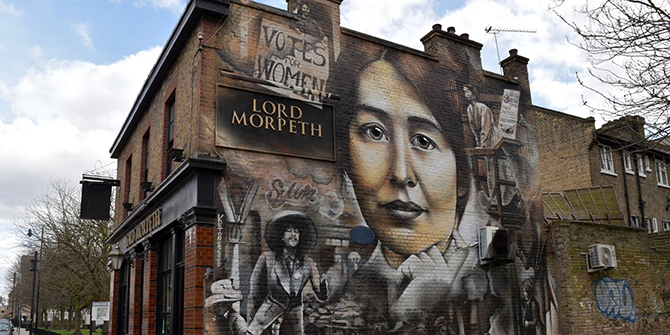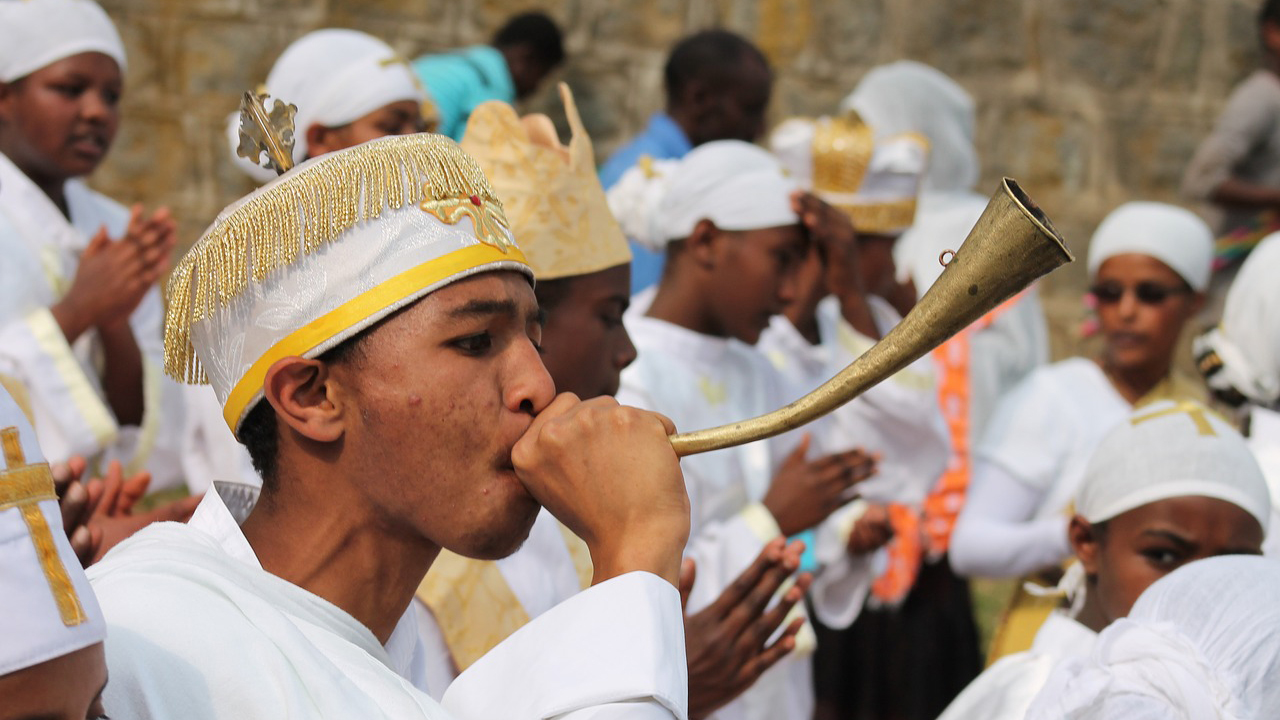A sense of political and economic marginalisation has grown among ethnic groups in Ethiopia, with violent outbreaks raising questions on the need for constitutional reform. To avoid state disintegration, a sustainable solution calls for a greater understanding of the relationship between various collective identities, and the shared experiences of inequality and economic struggles.
James Jeffery wrote in early 2018:
‘In Rwanda, radio programs such as Radio Télévision Libre des Mille Collines spread much of the toxic hatred that fueled the country’s genocide. Social media appears similarly capable in spreading untruths and ethnic barbs in Ethiopia.’
The quote above was written almost 19 months ago, but it is even truer now.
The protagonists and the balance of power has shifted. The marriage of convenience in Ethiopia between the Amhara and the Oromo ethnicities in their opposition to the Tigray People’s Liberation Front (TPLF) ruling political party is no more. The TPLF has congregated in the Tigray region and some Oromo and Amhara elites are waging a relentless media war against each other.
Ethiopia’s Prime Minister Abiy Ahmed has lost much of his popularity and credibility domestically, even as he was awarded the Nobel Peace Prize in October 2019.
His power ‘base’ in the Oromia region is increasingly questioning his loyalty to the ‘Oromo cause’, especially after a remark made in parliament appearing to criticise the prominent Oromo political activist Jawar Mohammed. His newly published book titled Medemer was burned by protesters. Conversely, some Amhara elites are suspicious of his commitment to Ethiopiawinet (or their version of pan Ethiopian nationalism) and contemptuous of what they perceive as his excessive tolerance of militant Oromo nationalists, including Jawar. It is now common in Ethiopian political discourse to wonder about the future of Ethiopia as a country. Terms like ‘possible implosion’, ‘secession of regions’ and even ‘genocide’, which were once taboo, are frequently invoked.
Two views on state formation
Scholars concerned with the formation of states hold one of two positions: Charles Tilly’s position is that war is decisive for the establishment of states while others point at the ‘war breaks states’ perspective. This observation posits that both views neglect the ‘sub-national’ level. While proponents of the ‘war breaks states’ thesis are missing subnational zones of rule, supporters of the ‘war makes states’ approach take a view of statehood that focusses on ‘state strength’, hindering an adequate analysis of the situation on the ground.
The empire state of Ethiopia, which avoided European colonisation, has its own particularities in Africa. The violence currently unfolding in the country is a more acute stage of internal conflicts that have bedeviled it from its inception. Unlike the rest of Africa, Christopher Clapham argues:
‘In a few cases, such as Thailand or Ethiopia, existing non-European states were strong or diplomatically agile enough to secure their admission to the new universal state system, and generally took advantage of this status in order to extend their control over previously quasi-independent peripheries (a process that created problems of its own).’
What Clapham calls ‘problems of its own’ is the challenge Ethiopia has been facing in transforming itself from an empire into a modern state.
There is a strong sense in the Southern region, the Somali region and Oromia, of having been conquered, marginalised and relegated to the periphery of Ethiopian history. In Oromia, an essentialist Oromo identity narrative is articulated by some elites. There is resistance to children learning Amharic in Oromia and other parts of Ethiopia based on assimilation into Amhara dominated identity inculcated by Menelik the 2nd and Haile Selassie. There is a lack of what Sidney Tarrow calls: ‘shared meanings’ at the national level. Instead, violent ‘contentions’ between identities is persisting. Even university campuses have not been spared from ethnically inspired murders.
Consolidation of power
During the last three decades, the three major ethnic groups (Tigreans, Amhara and Oromo) have tried to consolidate their power over the minorities in ‘their’ own regions to varying degrees. Initially, when the Ethiopian People’s Revolutionary Democratic Front (EPRDF) took over, it reorganised Ethiopia into 14 federal regions, shifting away from the unitary rule of Haile Selassie and its successor, the Dergue (1974–91). In 1995, the constitution condensed five regions into one: the Southern region. This reduced the total number of regions to nine. This was a sharp departure from the unitary organising principle that Menelik II (1889–1913) established and Haile Selassie consolidated.
The minorities within the federal regions have resented the political power of the larger or more powerful groups and are now beginning to demand regional status. Currently, there are at least thirteen ethnic groups demanding more autonomy or regional status: key flashpoints include Sidama, Wolayta, Kemant, Welkait, Kaffa and the Raya areas, along with the borders between the Somali, Oromia and Afar regions. In theory, the Ethiopian constitution allows for regional status and even secession, but Abiy Ahmed has stated that the country’s territorial integrity is non-negotiable.
The Sidama and Wolayita want to break away from the arbitrary grouping of 56 ethnicities within the Southern region. Here the Sidama are about five million and the largest and most dominant group. The regional capital is Hawassa, also the capital of Sidama, which has evolved into a multi-ethnic city like Addis Ababa and Dire Dawa, and has become a hotbed of protests, church burnings and ethnically inspired vigilante killings. The city is a site of competition and rivalry for collective goods and political authority. Similarly, the ownership of Addis Ababa, or Finfinne as called by Oromo nationalists, is provoking violence. Dire Dawa is a similarly divided city. Tigray is functioning more or less as a proto-state (a state within a state), and the entire country may well blow wide open. For example, the TPLF refuses to hand over former intelligence chief Getachew Assefa for federal prosecution over abusing office. It also effectively resisted federal moves to remove troops and weapons from the Eritrean Ethiopian border despite Abiy Ahmed’s wish to do so. The TPLF has also rejected Abiy’s move to merge the EPRDF into one political party, making the future of the grouping uncertain. The TPLF wants to continue with the notion of the ‘developmentalist state’ but Abiy has shown signs of veering away from it. According to Gebru Asrat, who was a former member of the politburo of the TPLF, secession is now openly advocated by the TPLF.
A sense of political and economic marginalisation forms the basis upon which some of the zones and regions like Gambella and Benishangul in the Southwest demand their own exclusive political space. As federal units, they want the right to control over resources found within their jurisdictions, but this has the effect of marginalising other groups living within regions who ‘don’t belong’. Thus, for the people of these regions, true federalism would mean a federal practice whereby the federating units are allowed to own and manage their resources as they desire, thereby weakening the role of the centre. One problem with this aspiration is that subnational boundaries are in contention and far from resolved.
It would be reductionist to explain Ethiopia’s problems as only emanating from ethnic rivalries. Inequality is severe in the country. Ethiopian youth unemployment and underemployment are other factors fuelling unrest. The TPLF in Tigray wants the status-quo to remain based on the existing constitution, which favours its interests. Land grabs in Gambella and Benishangul regions have disrupted many lives. There are an estimated three to four million internally displaced people in Ethiopia, which is arguably the worst such displacement in the world. Money has been transferred illegally out of the country, depriving it of badly needed foreign currency. Tax evasion is pervasive and even when collected little of it makes it into government coffers. Ethnic insurgents in Oromia robbed eighteen banks. Illegal cross border weapon transfer is common. Law and order is deteriorating in the country.
Rather than resulting from a long-standing primordial ethnic cause, we might alternatively reframe communal violence in terms of historical, political and economic explanations. Ethnicity is used all too often to blame those involved in conflicts for their troubles. One needs to scrutinise more. There are multiple purveyors of violence within the state. The violence unfolding can therefore be conceived as being caused by class, economics and ethnicity simultaneously.
Alliances within and outside the EPRDF are shifting, interests are aggregating and battle lines are forming in contested areas. The EPRDF is morphing into something very different from what it was. Organisations remain ethnically based and media is largely controlled by ethnic elites with widely contrasting agendas. The project of building a nation state that Menelik II began, through assimilation by elite intermarriage, Amharasation, and conquest using weapons acquired from the Europeans, is more than ever in danger of unraveling. The expectation that people can come together, forge a cross-ethnic association for broader social, economic and political change on a non-communal basis is simply not occurring in Ethiopia.
Abiy Ahmed has proven himself savvy at capturing media headlines and winning awards: by proposing peace with Eritrea that in practice he has little power to implement; and by waging a campaign of planting trees to fight deforestation while simultaneously continuing to embrace economic policies that undermine the environment. International actors heavily invested on the person of PM Abiy for transitioning Ethiopia to the elections due in May 2020 appear to have been seriously concerned by the latest flare up of violence and killings in Oromia. It is not at all clear how elections can be held within the prevailing security climate resulting in very restricted openings afforded to civic political actors.
The way forward
A recent Foreign Policy article was titled ‘Ethiopia will explode if Abiy Ahmed doesn’t move beyond ethnic-based politics’, but ethnicity’s role in conflicts cannot be ignored or wished away. Ethnic politics has been a perennial question in Ethiopia, to a greater or a lesser degree, but a fuller understanding of the relationship between various collective identities and political and economic struggles is needed in the quest for a sustainable solution.
There is no easy solution but a strong centralised unitary governing system is unlikely to succeed in a multi-ethnic society like Ethiopia. As a starting point, perhaps the country can consider Arend Lijphart’s consociationalism, which stands in contrast to the concept of ‘majoritarian democracy’. While majoritarian systems call for the integration of minority groups and the distribution of individual rights solely, the consociationalist approach consists in accommodating minorities by granting them collective rights. Utilised in divided countries such as Lebanon, consociationalism could overcome the obstacles of division by using power-sharing arrangements between ethnic groups to establish a stable democratic system and avoid future violence.
Photo: UN flag raising ceremony, UN day celebration in Addis Ababa, Ethiopia. © UNICEF Ethiopia/2016/Demissew Bizuwork.






Marriage of convenience is over.not so.
99% of Ethiopians not interested in all this stuff. They just want to get on with life.
Sir! I can see you have a real issue ! am sorry for those who can’t truly argue with perception ! due to the fact I have the epistemic advantage over others “whites” any how you’r just writing that’s fits your interest plus you have no love ,care Ethiopia as hole ! meaning it’s impossible to be in the middle even!
Ethiopia seems to be falling apart.
At least with Yugoslavia, the world tried to rescue but I think the word is simply watching now. Space/location, time and pigmentation do matter. Ethiopians do not believe they’re black but Europe and America have their own perceptions.
Sir thank your for telling it like it is… the problem with Ethiopia and Ethiopians are they are more concerned in keeping appearance rather than dealing with the real problem in the country.
Tsegaye Ararsa, an Oromo lawyer based in Melbourne says Abiy is pushing the imperial project of subsuming the other nations under the Amhara . Despite his alleged Oromo heritage, Abiy is partt of the Oromo project. He came to power by hiding behind Lemma Megersa and riding on the back of the Querro. He says, the Oromo didn’t know him until too late!
Your writing is so excellent, I couldn’t help but share it with everyone. We hope you will share more with us!